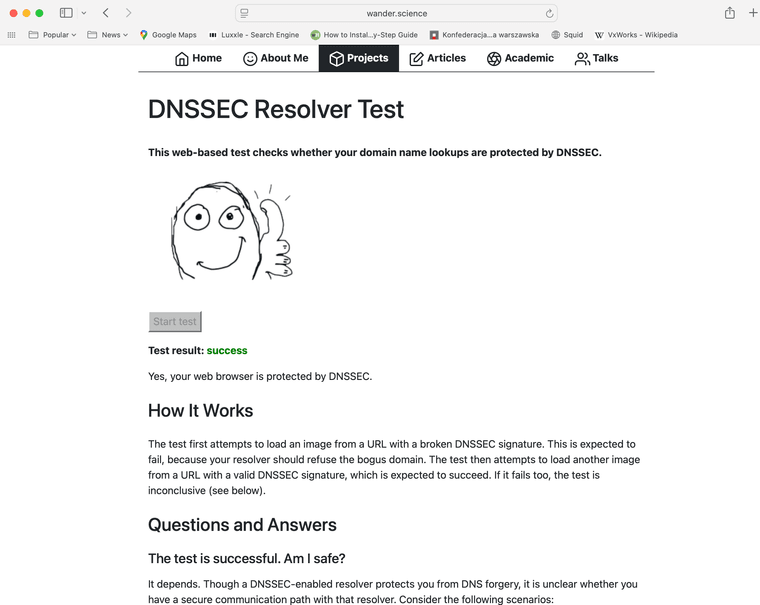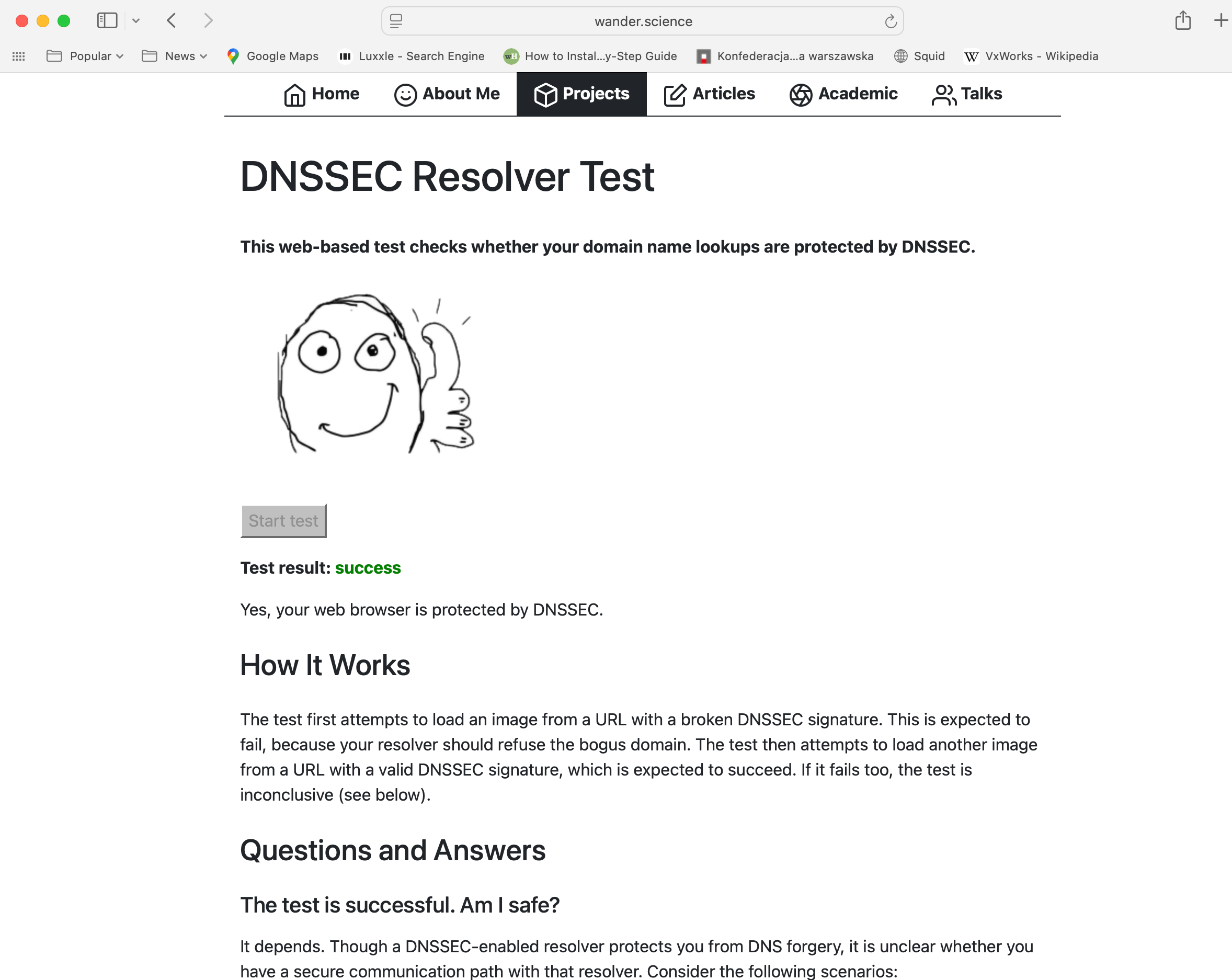DNSSEC Resolver Test site
-
i was wonder if anyone has checked out this site?
https://wander.science/projects/dns/dnssec-resolver-test/

-
@JonathanLee said in DNSSEC Resolver Test site:
https://wander.science/projects/dns/dnssec-resolver-test/
The patato checker.
Uncheck :

and do the test again.
So that page, and this one : http://www.dnssec-or-not.com/ test if you've checked the resolver's DNSSEC capability, or not ^^
That web site is part of my collection of web sites that test several DNS(SEC) related things.
I 'admin' several web servers ( = domain names), I also use site use this one https://dnsviz.net/d/test-domaine.fr/dnssec/ to check out a domain name DNSSEC capabilities, as I need to be sure it works = me not messing up things when deploying it.
test-domaine.fr is a domain I rent and use to test things before I apply them on the domains that can't afford down time when I mess up (again).
Remember : if you set up DNSSEC wrong on your web server, mail server ( actually DNS domain name server ), your domain name will 'vanish' from the Internet.
DNSSEC was considered rocket science not so long ago and maybe it still is, as using it really implies that you know what DNS is.The good thing about pfSense : when you install it, and don't change (add, remove) any pfSense DNS settings, it will use DNSSEC out of the box without the user (admin) even being aware of anything.
DNSSEC = that's why resolving (yourself, locally) is such a good thing.
Forwarding means : you have to trust some one else.Last time I checked, half of Europe's web site are using DNSSEC, and the US was ... not really using it.
That changed a lot the last several years : DNSSEC is now somewhat mandatory for all government hosted sites world wide.
